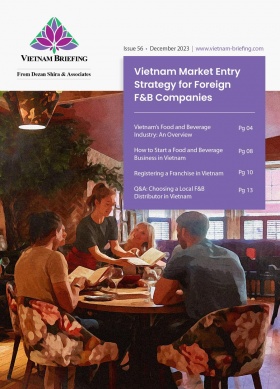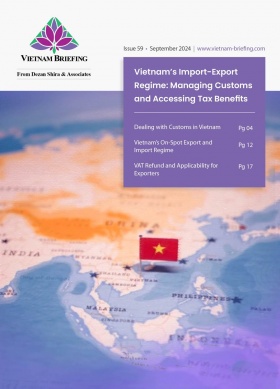Avoiding PE Risks in Vietnam: Best Practices for Foreign Representative Offices
To avoid triggering Permanent Establishment (PE) status, Vietnam investors must thoroughly understand the country’s regulatory framework for representative offices (ROs) and PEs. This ensures compliance, minimizes tax liability, and mitigates legal risks.
Investors expanding into new markets like Vietnam often encounter Permanent Establishment (PE) risk, a common issue that can lead to double taxation. This risk typically arises when representative offices (ROs) of foreign firms exceed their permitted operational scope in Vietnam. This article offers a comprehensive overview of PE and RO concepts, equipping investors with strategies to mitigate unnecessary tax liabilities.
How does Vietnam law define a representative office?
According to Clause 2, Article 44 of Vietnam’s 2020 Law on Enterprises, a representative office of an enterprise is “its dependent unit, which acts as the enterprise’s authorized representative, represents and protects the enterprise’s interests. In addition, a representative office shall not do business and generate income.”
Furthermore, Decree No. 07/2016/ND-CP dated January 25, 2016, only permits an RO to conduct liaison activities, market research, preparatory or auxiliary activities, and trade and investment promotion of its parent company within the period stated in the establishment license. In terms of operational purposes, an RO is only allowed to perform certain functions, including:
- Renting offices;
- Renting and purchasing equipment and facilities necessary for their operations;
- Recruiting Vietnamese and expatriate employees to work for the RO;
- Opening bank accounts in foreign currencies or Vietnamese dong at licensed banks in Vietnam and using those accounts for the RO’s operations only;
- Signing off contracts for the above-mentioned activities to serve its operation (i.e. labor contracts, office lease contracts, etc.); and
- Having the RO’s name stamped.
Vietnam’s regulations also specify which activities that are not under an RO’s scope of operation, including:
- Direct conduct of profit-generating activities in Vietnam;
- Trade promotion activities which are out of the permitted scope under commercial law; and
- Entering any commercial contracts; and
- Amending or supplementing the commercial contracts entered into by its parent company, except the permitted cases where the chief representatives are authorized by its parent company to take these actions with a letter of authorization.
How does Vietnam law define a Permanent Establishment (PE)?
The creation of a PE in Vietnam is determined by application of the domestic laws and the tax treaties signed between Vietnam and other countries.
In Vietnam, a PE is defined as “a fixed place of business through which a foreign enterprise carries out part or the whole of its business or production activities in Vietnam”.
Per the domestic law, the tax authorities in Vietnam determine the PE based on the following three conditions:
- The existence of a “business establishment”;
- This business establishment must be fixed; and
- The enterprise carries out wholly or partly of its business activities through this establishment.
Below are the forms of Vietnam-based PE through which foreign companies carry out some or all business operations and manufacture under domestic regulation:
- Branches, representative offices, factories, workshops, means of transportation, oil fields, or other natural resources extraction sites in Vietnam;
- Construction sites;
- Service-providing centers, including consulting services through employees or organizations provided that these services in a related Vietnam-based project or projects last in a period or periods exceeding 183 days in each 12-month period;
- Agents of foreign enterprises; and
- Representatives in Vietnam who have the authority to sign contracts under the name of foreign companies or representatives who are responsible for providing goods and services regularly in Vietnam.
In case the Double Taxation Avoidance Agreement (DTAA) signed by Vietnam has different provisions on PEs, the provisions of that agreement shall prevail.
Navigating PE challenges in Vietnam: Exposure to increased tax compliance
Vietnam’s tax authorities may consider an RO as a PE when it performs operations differently from what is allowed. The below activities may increase the PE risk:
- Providing services such as maintenance to customers who purchase products from the parent company;
- Sales promotion and product sales activities for the parent company in Vietnam; and
- Entering commercial contracts on behalf of the parent company in Vietnam.
From a tax perspective, once the RO is considered as the PE of the parent company, the income attributed to the RO would be subject to taxation in Vietnam, leading to an increased financial burden for the foreign entity operating in the country. Failure to comply can result in significant penalties, including back taxes and fines that may meet or surpass the original tax obligation.
The risk of double taxation can be quite burdensome. According to the World Bank’s Ease of Doing Business Index, businesses in Vietnam must make 32 tax payments each year, which requires approximately 498 hours for compliance. This highlights the significant administrative burden placed on businesses.
Additionally, any legal violations could jeopardize future efforts by the parent company to convert the RO into a different business entity for income-generating activities. The overseas parent company may face challenges in obtaining the necessary licenses to establish a new company in Vietnam from the licensing authority, given that the RO has a history of violating licensing regulations.
Takeaways for foreign businesses in Vietnam
Foreign businesses operating in Vietnam can unintentionally create PE risks, leading to significant tax obligations and future complications. To avoid these issues, it is crucial for businesses to gain a strong understanding of the local laws and regulations where they operate, as well as the relevant tax treaties. This knowledge will help them identify situations that could result in a PE, understand the associated tax implications, and determine if they can apply the tax treaty to obtain exemptions or reduced tax rates.
Furthermore, overseas businesses should ensure that their ROs do not engage in trading transactions or any part of the trading cycle that falls outside the licensed functions. The ROs also must avoid participating in any activities that generate revenue for the foreign entity in Vietnam.
About Us
Vietnam Briefing is published by Asia Briefing, a subsidiary of Dezan Shira & Associates. We produce material for foreign investors throughout Asia, including ASEAN, China, and India. For editorial matters, contact us here and for a complimentary subscription to our products, please click here. For assistance with investments into Vietnam, please contact us at vietnam@dezshira.com or visit us at www.dezshira.com.
Dezan Shira & Associates assists foreign investors throughout Asia from offices across the world, including in Hanoi, Ho Chi Minh City, and Da Nang. We also maintain offices or have alliance partners assisting foreign investors in China, Hong Kong SAR, Dubai (UAE), Indonesia, Singapore, Philippines, Malaysia, Thailand, Bangladesh, Italy, Germany, the United States, and Australia.
- Previous Article Op-Ed: Trump 2.0 Will Benefit Vietnam – But Only if Trade Surpluses Avoid Populist Backlash
- Next Article Temu Enters Vietnam’s E-Commerce Market: Takeaways for Newcomers






























